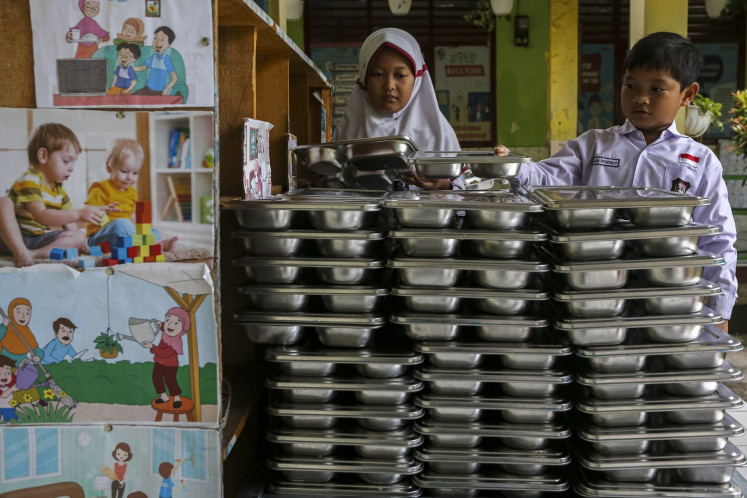RI seeks to regain status as 'spice country'
Indonesia is seeking to more than triple its spice exports in 2015 to take advantage of the worldâs growing spice trade, a move that could see it revive its glory years as a world renowned spice exporter
Change text size
Gift Premium Articles
to Anyone

I
ndonesia is seeking to more than triple its spice exports in 2015 to take advantage of the world's growing spice trade, a move that could see it revive its glory years as a world renowned spice exporter.
Agriculture Minister Suswono said in Jakarta on Thursday that given the world's growing demand for spice products, Indonesia would be able to more than triple its spice exports to US$7.72 billion in 2015, about 9 percent of the global spice trade during the year.
Speaking during the 2013 Agro and Food Expo in Jakarta, the minister said to advance Indonesia's agribusiness sector, the country should look to its unique and traditional commodities ' namely spice and herbs ' which once made the country globally renowned.
Suswono said spices ' Indonesia's fourth biggest exported agricultural commodity after shrimp, fish, and coffee ' should take advantage of the growing demand in commodities widely used as raw materials for cigarettes, cosmetics and pharmaceuticals.
The ministry's data shows that global trade for spices witnessed an average 10.2 percent increase annually. The world's total spice trade is expected to reach $85.73 billion in 2015, about a 44.5 percent increase from $59.39 billion in 2010.
Suswono said Indonesia, which contributed 2.3 percent to the world's spice trade in 2010, should explore new market opportunities to allow it to benefit from the surge in the world's spice demand.
Trade Ministry data showed Indonesia's spice exports reached $2 billion in 2012, a 25 percent increase from $1.6 billion in 2011. Indonesia produces and exports various kinds of spices, including pepper, nutmeg, cinnamon, ginger, turmeric and clove.
According to Suswono, Indonesia's top spice commodities are pepper and nutmeg. According to data from the United Nations Conference on Trade and Development (UNCTAD), Indonesia is the world's fourth-biggest producer of pepper.
The ministry's data shows that Indonesia, which produced 88,160 tons of pepper in 2012, earned about $423.48 million from pepper exports during the year.
The country is the world's biggest exporting country of nutmeg, according to the UNCTAD, reaching a total $32.6 million 2009.
However, according to UNCTAD and World Trade Organization (WTO) data, Indonesia is still behind China, India and Madagascar in the global market.
'Indonesia is one of the world's renowned spice producing countries. Its reputation has earned it the nickname 'the Spice Island country',' Suswono said, adding that the reputation had also lured nations from across the globe to look for spices in the archipelago during the colonial era.
To achieve the target, Suswono said the ministry was making various efforts, including rehabilitating and expanding existing spice fields.
Besides spices, Suswono said herbal medicine also had promising world market potential that could see Indonesia become a top player in global trade for the commodity.
He said the government expected to book a Rp 15 trillion export value from the herb industry in 2015, while at the same time reaping Rp 20 trillion from domestic trade in the sector.
Data from the Agriculture Ministry shows that Indonesia recorded Rp 12.5 trillion from traditional medicine in 2012, up 13.64 percent compared to Rp 11 trillion in 2011.
The country reached an estimated Rp 13 trillion from herbal medicine in 2012, which was a 18.18 percent increase compared to Rp 11 trillion in 2011.









